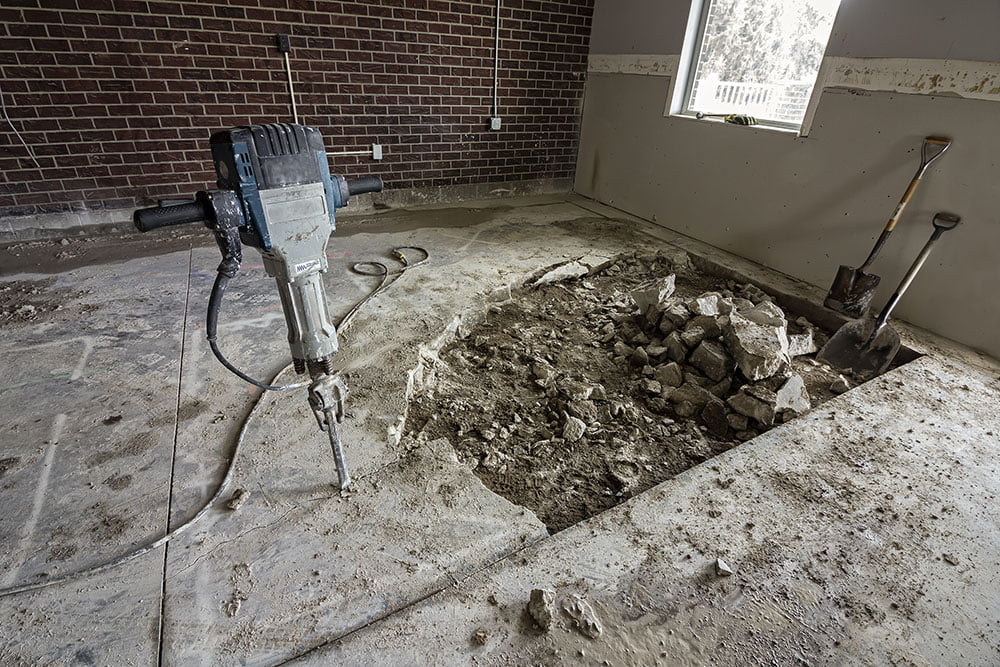Residential slab leaks can be dangerous for the homeowner and their family, causing serious damage to the home’s foundation. And therefore, such problem needs to be addressed immediately by professionals. The dangers of a residential slab leak are many.
Meanwhile, let us look at the causes of a residential slab leak;
Causes of a Residential Slab Leak
- Contraction or soil expansion
Contraction or expansion of the soil when water is poured into it can cause a leak. If someone is pouring water on the ground, it can cause a small hole in the ground, and when this happens, water will seep through that hole into the slab underneath. This means that there is often a small amount of water under your slab, but it’s not enough to cause any damage or create a leak.
- Slab leaks from cracks in the concrete slab
Cracks in the concrete slab are one of the most common reasons for slab leaks. If there are cracks in your concrete slab, water can seep through them and cause problems for your house’s foundation systems. You should look for cracks in your concrete slabs and repair them as soon as possible so that this won’t happen again in the future.
- Abrasion
Abrasion is a process in which the ground material is worn away by friction. As the material is abraded away, it forms tiny particles of clay and soil. Abrasion occurs when water slowly wets the ground. When this happens, the soil particles can break off from their parent material as they begin to act as sandpaper on the surface.
Abrasion often occurs during heavy rainstorms since water tends to wet the ground more quickly than it does during dry conditions. This can cause a buildup of debris on top of your foundation wall, eventually leading to leaks.
Effects of Residential Slab Leaks
Worst case scenario: Your home’s foundation could fail and cause your entire structure to collapse. This can result in serious injuries or even death to anyone who lives in the home at the time of failure. If a residential slab leak goes undetected for long enough, it will worsen over time and eventually cause disaster for all living there. In this case, hire a Slab leak detector Frisco, TX to help you out.
Financial costs: The cost of repairing a residential slab leak can be significant, especially if it occurs when you have property insurance coverage through an insurance company. You may end up paying out-of-pocket expenses for repairs if insurance does not cover the cost of repairs or replacement costs due to loss of use during the repair period.
Mold growth: Mold is an inevitable result of water damage, as it is a breeding ground for bacteria and fungi. A leak in your home can cause moisture to seep into the walls and floor, allowing mold to grow. Mold can cause severe health effects, so it’s important to prevent it from forming in the first place by fixing any leaks and properly drying out your home once they’re fixed.
Water damage: Water damage creates a risk for mold, bacteria, and mildew growth because it allows moisture to come into contact with the materials that line the walls and floors of your home and contributes to their deterioration over time. If you notice water stains on your floors or walls, you know that a leak somewhere in your home or building needs immediate attention from a professional plumber who can fix it quickly before any more damage occurs.
Key Takeaway
If you have a problem with your concrete slab, it’s important to fix it before the water gets into the foundation. Once the water has entered your foundation, it can cause mold and mildew to grow on the walls, which can cause damage to your home.

